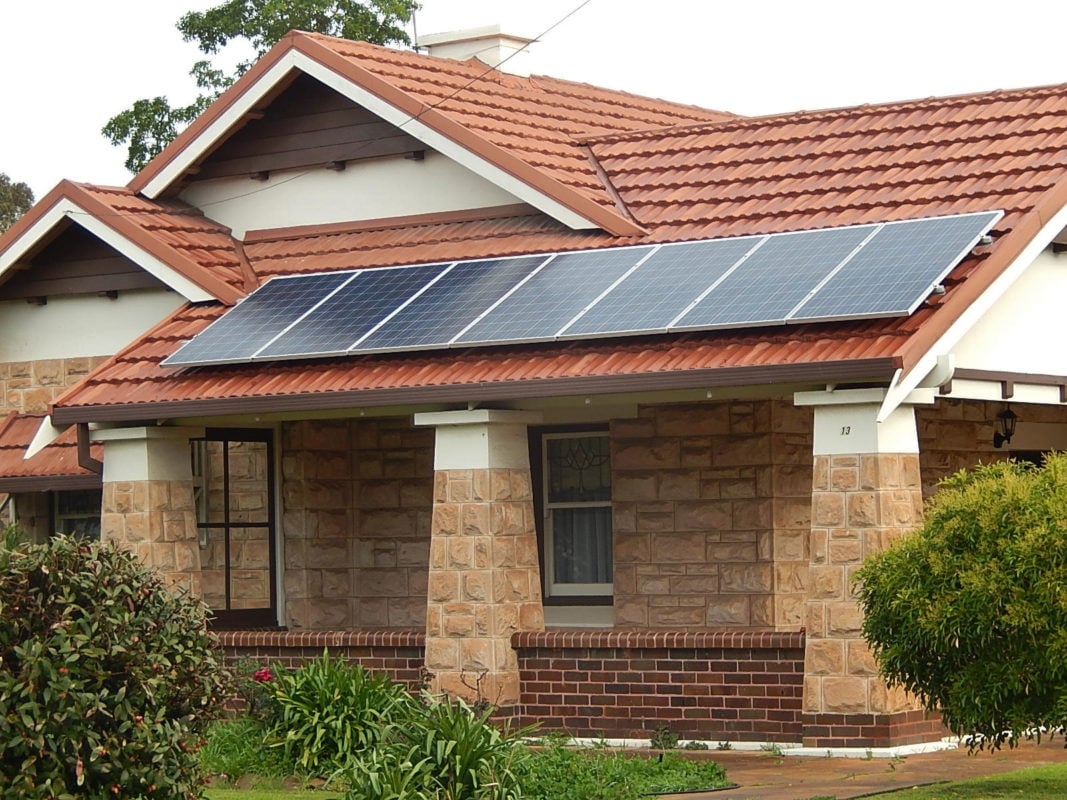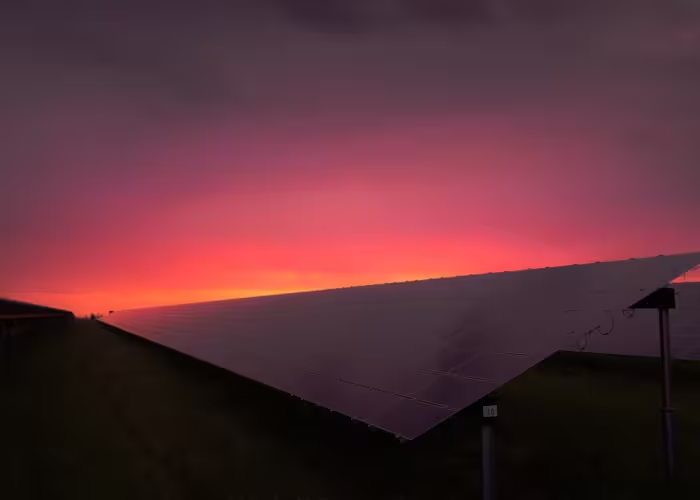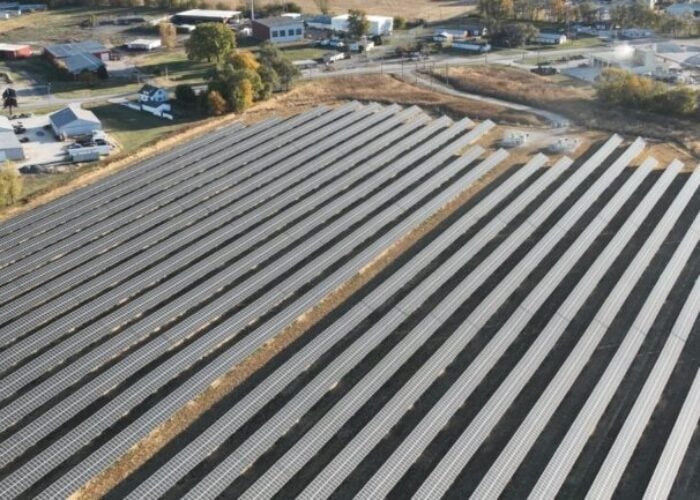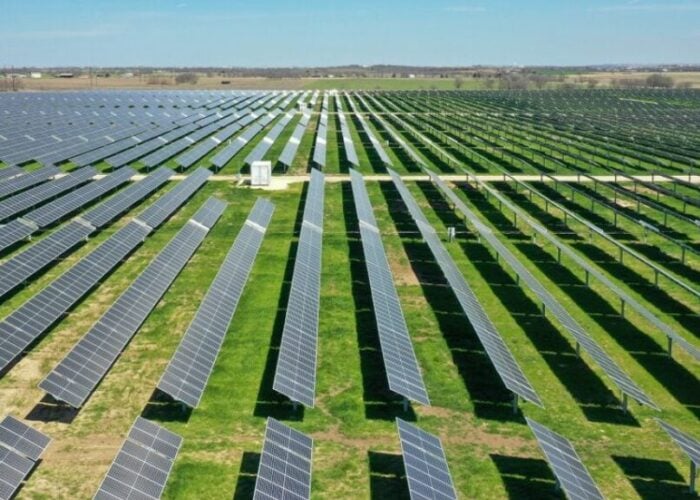
A new bill introduced at the Kentucky General Assembly would “kill” residential solar and leave PV customers in neighbouring municipalities with differing rates, says local solar installer Solar Energy Solutions.
SB 214 was introduced last week and would allow every individual utility to submit their own rate case to the Public Service Commission (PSC), resulting in differing rates for solar users that could mean rates on par or even sub wholesale levels.
Try Premium for just $1
- Full premium access for the first month at only $1
- Converts to an annual rate after 30 days unless cancelled
- Cancel anytime during the trial period
Premium Benefits
- Expert industry analysis and interviews
- Digital access to PV Tech Power journal
- Exclusive event discounts
Or get the full Premium subscription right away
Or continue reading this article for free
“This applies to all state-wide utilities, and we have 23 of those to deal with in this one state,” Steve Ricketts, general manager and owner of Solar Energy Solutions told PV Tech.
“The bill basically says all 23 utilities can decide and apply for their own rates. We don’t know what rates they are going to ask for; they could end up with entirely different rates. It’s going to be a very complex situation.”
Under the bill, there is a grandfathering clause that would allow existing net metering users to be kept under current rates for 25 years. However, anyone who wishes to invest in solar after 15 July 2017 would be under new rates that will most likely offer a much slighter financial incentive.
The bill is similar to one that recently surfaced in Indiana, and therefore is not a novel approach. However, what makes this situation worse is the potential for solar users in neighbouring municipalities to end up with drastically different compensation rates – and be disadvantaged purely because of where they may happen to reside geographically.
“It's a real patchwork quilt of rates. For a business it will be an unbearable process to deal with 23 public utilities, another 12 or 15 municipals…there's nearly 40 different utilities when you count it up in this one state.”
Under the bill, solar access in Kentucky will be predetermined based on location and particular utility. “We've seen it in other states but there seems to be more central agreement and stewardship. It is the worse though in terms of breaking it down to individual utilities, I think that's where the threat lies; making it very complex for anyone in the solar industry to do business, because we'd have to represent our consumers in many individual rate cases,” explained Ricketts.
‘It would kill’ residential solar
The fact that the playing field would no longer be level amongst solar users in the state is the least of the problems this bill would create.
Giving utilities free reign to decide their own rates could potentially reduce incentives from around US$8-10 cents/kWh to around US$3.5 cents/kWh if it equates to the wholesale rate or levelised cost of solar energy.
“It would kill residential solar, it really would,” said Ricketts, adding that the end result would likely be utilities buying electricity from rooftop solar systems at a reduced rate, then selling the electricity back to those customers at the retail rate.
The uncertainty regarding the rate design in a given municipality could mean that homeowners are unable to predict the value of their investment, which could result in a halting of residential solar.

Solar being subsidised
Bill sponsor Jared Carpenter argues that the utilities are within their right to offer a lower incentive to solar users, as the current retail rate purportedly means that they are being subsidised by non-solar users for their use of the grid.
“I don't think we entirely disagree,” admits Ricketts, “but what we do disagree with is that the rate is not as low as the levelised cost of energy. There are many studies that have been done on the value of solar, and the independent ones have been coming out at sort of 6,7,8 cents/kWh and I’m guessing what will be on offer will be below those rates. We are asking for the bill to be amended where the PSC actually plays a role in arbitrating after appropriate studies what that rate will be, so it is not just left up to the utility to decide.”
For now, SB 214 awaits approval by the Committee on Natural Resources and Energy before it can progress any further.
The good news
In good news, Carpenter said he is meeting with utilities and solar advocates to create a compromise on the bill, which could return to the committee for consideration as early as 1 March.
Carpenter said he aims to expand the availability and the usage for solar whilst fairly compensating utilities for their costs in facilitating solar development.
Importantly, Kentucky limits the amount of power a utility can buy from a customer to 30 kilowatts per month, which is relatively small compared to a number of other states, even of similar market size. Whilst the bill would raise this limit to 1,000 kilowatts on a single meter, which would open up the solar arena to many more businesses in the commercial sector, it would simultaneously cause a blow to the residential sector by eliminating net metering.
Carpenter has however asked for the input of local solar businesses, such as Solar Energy solutions, to attempt to reach some adjustment of language or compromise on the wording of the bill.






